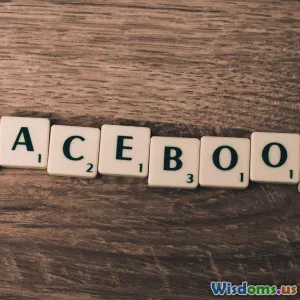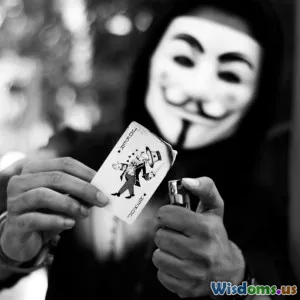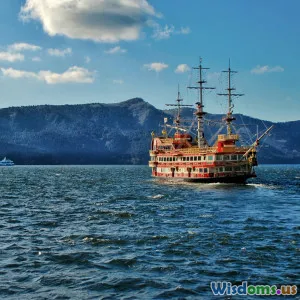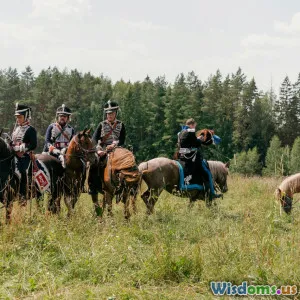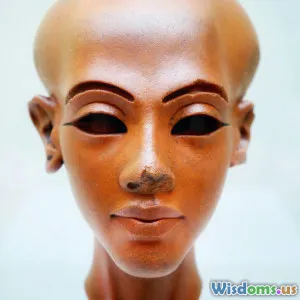
The Hidden Influence of Secret Groups
8 min read Unveiling the covert impact of secret groups on society and power structures worldwide. (0 Reviews)
The Hidden Influence of Secret Groups
Secret groups and organizations have fascinated and mystified societies for centuries. The idea that clandestine alliances operate behind the scenes influencing everything from political decisions to cultural movements captures public imagination and fuels countless conspiracy theories. Yet, beyond sensationalism lies a complex reality where secret groups have exerted tangible impacts on history, governance, and global affairs.
In this article, we will peel back the masks obscuring their hidden influence, explore the origins and structures of secret groups, investigate some concrete examples across history and modern times, and consider why they continue to captivate and affect our world.
Understanding Secret Groups: Origins and Structure
Secret groups are typically defined by confidential membership, exclusive rituals or knowledge, and an agenda or shared interests unknown or inaccessible to the public. Their origins date back to antiquity where social, religious, or political minorities sought protection and power. Examples include:
- The Pythagoreans (6th century BCE): A philosophical and religious secret society founded by Pythagoras, using confidential rites and numbers to shape their worldview.
- The Order of the Illuminati (18th century): Founded by Bavarian Adam Weishaupt to promote enlightenment ideals secretly against oppressive regimes.
These groups often maintain strict initiation procedures, coded communication, and symbolic rituals to preserve secrecy and solidarity. Their structure tends to be hierarchical, allowing centralized control and safeguarding inner circles.
The purpose varies: from mutual aid and social networks to covert political activism or manipulation.
True Impact: Historical Examples of Secret Groups Influencing Society
The Freemasons
One of the most well-known secret organizations, Freemasonry originated in medieval stonemason guilds and evolved into a fraternal society promoting enlightenment principles. They count among their members influential politicians, businessmen, and scientists.
Historically, Freemasons played notable roles in:
- The American Revolution, with leaders like George Washington and Benjamin Franklin as members who fostered ideas of freedom and republicanism.
- The French Revolution, where Masonic lodges served as discussion hubs for revolutionary ideals challenging monarchy and church power.
Their influence is intricate and widely documented, showing how secret groups can intersect with public political movements.
The Skull and Bones Society
Established at Yale University in the early 19th century, Skull and Bones is an elite secret society with substantial sway over American political and economic institutions.
Its alumni include several U.S. presidents, Supreme Court justices, and heads of multinational corporations, illustrating how membership grants access to powerful networks driving policy and business decisions behind the scenes.
The Bilderberg Group
A modern example, the Bilderberg Group comprises annual off-the-record meetings of around 130 political leaders, experts, and CEOs primarily from North America and Europe.
The secrecy and exclusivity spark speculation about conspiracies; however, its agenda reportedly focuses on fostering dialogue and cooperation on global issues.
Nonetheless, this group’s influence on shaping international economic and strategic policies through informal consensus remains significant.
Methods: How Secret Groups Influence Modern Society
Networking and Patronage
Membership in secret or exclusive groups often provides unparalleled access to powerful social networks. This social capital can result in appointments to key positions, favorable business opportunities, and sway over political decisions.
Information Control and Strategic Planning
By controlling information flow and coordinating strategies discreetly, secret groups can influence media narratives, economic markets, and international diplomacy.
Cultural and Ideological Propagation
Secret societies often use symbolism, rituals, and selective recruitment to shape cultural values, moral beliefs, and political ideologies among their adherents, indirectly affecting broader societal norms.
Financial Resources
Some secret groups control significant financial assets which can be mobilized to fund political campaigns, charitable projects, or even covert operations that align with their broader aims.
Separating Myth from Reality
The secretive nature of these groups naturally encourages rumors, exaggerated theories, and misunderstandings. Popular culture often portrays them as puppetmasters controlling world events with malevolent intent.
However, credible historians and sociologists point out that while secret groups do exert influence, they are one factor among many in complex sociopolitical systems. Power dynamics also arise from transparent institutions, economic conditions, and public movements.
As historian Margaret C. Jacob notes, “Secret societies are windows into the unseen and often unofficial currents of history, not the totality of it.”
Why Do Secret Groups Persist Today?
Several reasons explain the enduring allure and presence of secret groups:
- Security and trust: Confidentiality allows members to express banned ideas or collaborate safely.
- Power consolidation: Exclusive membership lists establish privileged circles enhancing influence.
- Human fascination with mystery: Rituals and secrecy create a compelling identity and mystique.
Despite increased transparency in modern society, online forums and social networking have facilitated new forms of discreet or closed groups, preserving the fundamental appeal and function of secret societies in various ways.
Conclusion: Awareness and Critical Understanding
The hidden influence of secret groups is a potent and multifaceted phenomenon. While not omnipotent controllers of world affairs, these organizations—historical and modern—have contributed significantly to the flow of ideas, governance, culture, and power structures.
Recognizing their real impact requires balancing curiosity with critical thinking: embracing the known facts, questioning rumors, and understanding secret groups as parts of larger social systems.
By educating ourselves on their historical roots, methods, and influence, we gain nuanced insight into how insider networks shape our world and, more importantly, how transparency and accountability remain crucial in ensuring equitable society.
References
- Margaret C. Jacob, The Origins of Freemasonry: Facts and Fictions (1991).
- Mark Dice, The Bilderberg Group: Facts and Fiction (2011).
- John Lawrence Reynolds, Secret Societies: From the Ancient and Arcane to the Modern and Clandestine (2003).
Explore the mysterious yet historically grounded world of secret groups to better understand their true influence—not through sensational myths, but informed perspectives and evidence.
Rate the Post
User Reviews
Popular Posts










